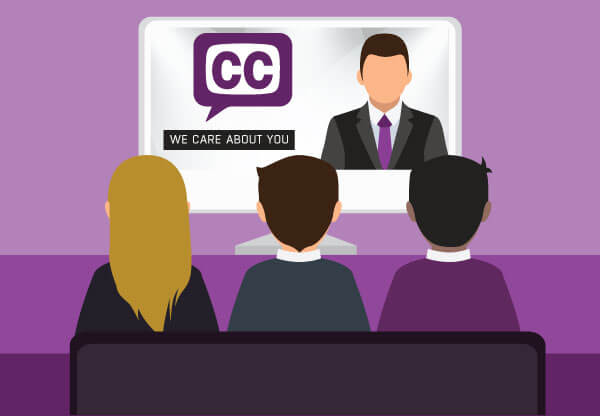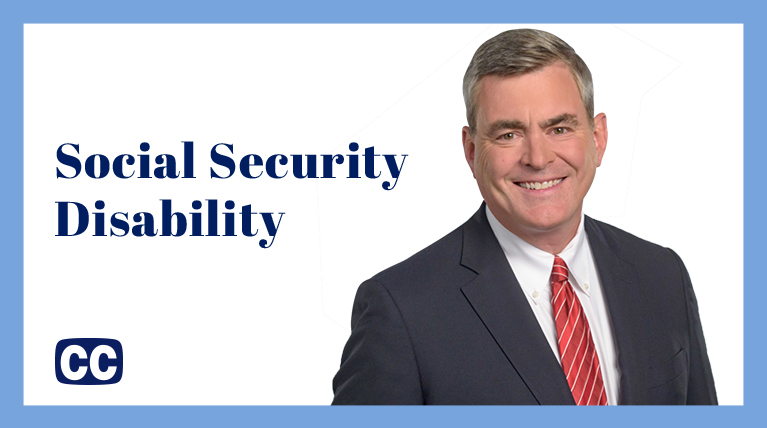How To Add Value to Your Law Firm TV Ads with Closed Captioning

You can reach more potential clients with your law firm’s television commercials by making a simple, low-cost addition: closed captioning.
You might think this only applies if you serve clients with hearing loss. Helping those viewers was the original reason for adding the option of subtitles, after all.
But it’s time to think about closed captioning differently. People’s TV-watching habits have changed. Numerous studies and reports show that all kinds of viewers, beyond those with hearing impairments, now use subtitles.
So, closed captions signal the values of your firm—that you care about people with disabilities—but they also give your TV ads a broader, stronger reach.
In this post, we’ll explain five reasons why closed captioning is good for your audience—and good for your firm.
Before our list, get the perspective of a lawyer who’s already doing it.
How a Wisconsin Law Firm Views Closed Captioning

Wisconsin attorney Tim Geary, who practices Social Security Disability law, added closed captions to his most recent ad campaign. It was an easy decision, he said.
“If you’re representing people with disabilities, you want to show you’re sympathetic to them,” Geary said.
The words in your legal marketing message should be compelling. But your actions, like the old line says, speak louder than words.
“My first firm had a bathroom in the basement that could only be reached by a set of narrow steps,” Geary said. “That doesn’t make sense. If you’re going to represent disabled people, it’s silly not to have an ADA-approved facility.”
Adding closed captioning to your TV spots is another way for you to signal you’re the right law firm for somebody who’s struggling with health problems. This applies to Social Security Disability, long-term disability, workers’ compensation, personal injury, product liability or any legal practice area serving people who have physical or mental impairments.
Closed captioning does come with an added cost, Geary noted, but he’s finding it to be well worth it. His ads for Geary Disability Law, after all, will run for the next three to four years.
“It was part of the start-up cost and doesn’t add anything month to month,” he said. “It really wasn’t a lot of money.”
He says he’s already getting positive reactions from his ads—and he’s confident closed captioning is contributing.
“I wouldn’t be surprised at all if I’ve already obtained clients because of the closed captions,” he said.
Geary isn’t the only one seeing the value in closed captions. The Association of National Advertisers (ANA) has long recommended that all TV ads include closed captioning.
“It says, ‘I care about you enough that I’m closed captioning my commercial so you can read my message,’” said Bill Duggan, group executive vice president for the ANA.
Duggan said it “should almost be a no-brainer.”
“It’s common sense,” he said. “Given the incredibly low costs of captioning, why not?”
5 Reasons Closed Captioning Is Good for Your Law Firm TV Spots
Consider these five benefits of closed captioning:
1. You reach more people, even those without hearing impairments.
This is where closed captioning has greater effects than you might initially think.
Multiple studies now show that a majority of all people use subtitles to make their TV viewing more comfortable.
You can even reach more young people this way. A 2015 study by the Oregon State University Ecampus Research Unit and a private media firm surveyed more than 2,000 students at 15 public and private universities about closed captioning.
Almost 99% of them said they found captions helpful, and 71% said they used captions at least some of the time. Remember, these are students.
A June 2018 article in Wired magazine said:
“Subtitles have only recently become essential for many TV watchers, period. A smattering of online encomia tell you it’s the only way to watch. One Redditor asks in r/movies, ‘I like having subtitles with everything I watch. Anything wrong with this?’ Almost everyone responds supportively, including this person: ‘I cannot fully enjoy any video without subtitles. At all.’”
With people now habitually reaching for the remote to turn on closed captioning, you want your ads to deliver what your viewers seek.
2. You break through distractions.
Captioning can also deliver your advertising message to people in doctor’s waiting rooms, where the sound is set to low on the TVs, or in places like restaurants, where ambient noise makes it impossible to hear the TVs.
“It helps extend your reach,” Duggan said. “In this distracted world, with so many screens, the words help your message be fully comprehended.”
3. You reinforce your marketing message.
You’ve typically got 30 seconds—maybe 15 or only 10—to get a viewer to understand what you’re telling them. Matching the words on the screen to the script is one way to squeeze the most effectiveness out of your few seconds with your audience. It helps your message sink in more quickly.
According to the National Institutes of Health (NIH), “More than 100 empirical studies document that captioning a video improves comprehension of, attention to, and memory for the video.”
Reading captions reemphasizes technical terms or names that can be hard to hear correctly.
“Closed captioning adds another opportunity for you to drive home your point,” said Firmidable President Nathan Chapman. “Any time you have an opportunity for more impact, you should take advantage of it.”
4. You send the right message about your law firm’s values.
As Geary and Duggan said, including closed captioning in your TV ads conveys that you’re sensitive to the needs of people with limitations.
If your law firm works with people who have injuries or disabilities, showing empathy is an important part of your brand and reputation.
When the NFL and FOX announced in 2011 they would provide closed captioning for the first time during the Super Bowl, the National Association for the Deaf and other organizations representing the hearing-impaired community applauded the decision and even had countdowns to game day—a public relations win for the Super Bowl.
5. You reach more people with hearing loss.
And of course, there’s the reason closed captioning was created in the first place. At our legal marketing firm, lawyers around the country tell us hearing loss itself can often be a factor in new cases.
Some workers’ compensation attorneys, for example, report that long-time factory workers, who spent years around loud equipment, are making more claims for hearing loss. The same goes for many other workers from noisy environments, even when they used ear protection.
Often, hearing loss will be one of many impairments your client faces. But it’s the one impairment that could make it hardest for them to understand your TV spots.
The National Institute on Deafness and Other Communication Disorders reported that 37.5 million Americans have some hearing loss.
Connect Your Legal Marketing to a Growing Trend
With decades of experience in TV advertising for lawyers, the legal marketing experts at Firmidable know every nuance that can move the needle in favor of attracting more clients to you—including how to apply increasingly popular closed captioning.
Closed captions are more relevant to viewers than ever. And the rules are always changing: The Federal Communications Commission (FCC) says any commercials longer than five minutes and any ad aired during the Super Bowl must use closed captions. Captions must be accurate, complete and properly placed.
To learn more about adding closed captioning to your law firm’s commercials, contact us.
Firmidable is the nation’s best legal marketing agency. We know more than anyone about how Americans choose their lawyers.
